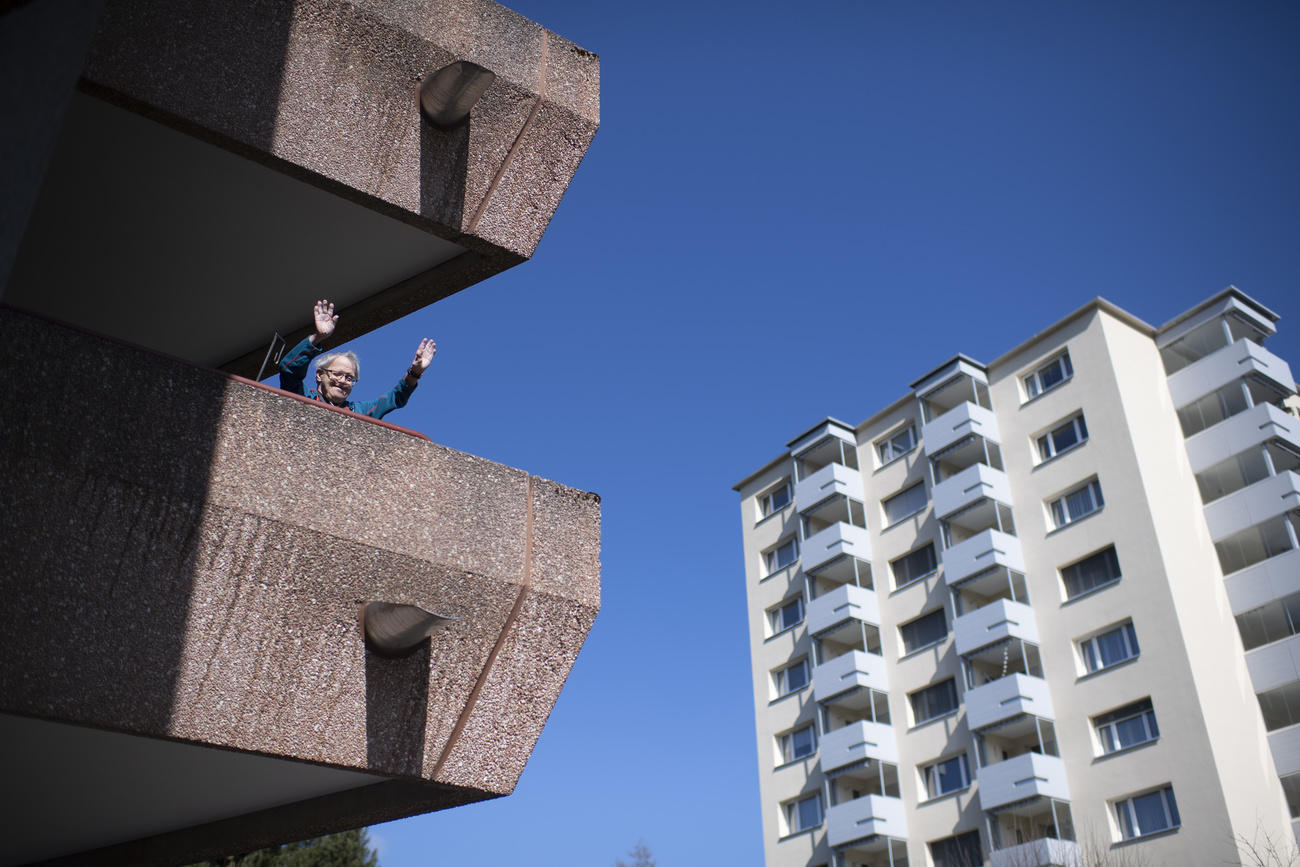Swiss politicians divided over post-virus timeline

As Switzerland prepares to enter week three of its coronavirus lockdown, some see the current situation stretching right into summer; others want a return to normality from April.
Following the comments of Interior Minister Alain Berset on Saturday that the Covid-19 crisis “will not be over by mid-May”, the Sunday papers carry a range of reports on the timeline.
Blickgets its hands onExternal link an internal report by the Zurich city security services, which reckons the “most likely situation” is a continuation of the pandemic, a further tightening of measures by the government, and a “massive extension” of the lockdown beyond the summer holidays.
This would mean keeping the country in “standstill until at least the end of August”, the paper writes, a situation which authorities have up to now been reluctant to publicly envisage.
Furthermore, Blick writes, the Zurich security forces document foresees two possibilities: the “most probable” would be a situation which in the coming days would see intensive-care units in the country overrun, and doctors forced to choose who should receive life-saving treatment. The second, “unfavourable”, scenario foresees an uncontrolled breakout leading to a “catastrophic” situation with widespread losses of life across all age groups.
Gradual return to normal
The SonntagsZeitung, meanwhile, carries a headline claiming that the right-wing People’s Party want shops in Switzerland to be back open again by mid-April.
Citing concerns about economic damage, the party’s Thomas Aeschi said that all businesses like hairdressers, gardeners, butchers, electronic and do-it-yourself stores, and dentists should be allowed back to work from April 19.
From a point of view of continuing to protect the vulnerable, Aeschi says, older and weaker people can still be protected if those coming into contact with them ensure they are wearing masks; he also says many more tests should be carried out to “more quickly isolate the sick”.
And while on the other side of the spectrum, the newspaper writes, there is also a willingness to study scenarios on returning to normality, the timeline is more sober.
Pierre-Yves Maillard, president of the Swiss Trade Union Federation, says that nothing can be decided until we know more about the extent of the virus and how many people have been infected. Social Democrat president Christian Levrat, meanwhile, criticises all such speculation as “dangerous charlatanry” – only health experts can make such judgements, he says.
Putting a price on life
The NZZ am Sonntag mentions in its front-page story that one estimate puts the cost of each week of lockdown for Switzerland at some CHF4 billion ($3.38 billion).
It also quotes Aeschi, and his idea that younger people, especially, might be allowed to progressively return to work as soon as the rate of new infections starts to slow; such concerns about getting the economy back moving again have also been raised by the centre-right Radical Liberal Party, the paper writes.
Meanwhile, it continues, Professor Stefan Felder from the University of Basel has calculated the cost of saving each year of a human life, through current lockdown measures, at half a million Swiss Francs – “much more than we have been willing to spend on health until now,” he says.
Morally and politically, the paper asks, faced with such calls and cost-benefit analyses, what are politicians supposed to do?

More
Coronavirus: the situation in Switzerland

In compliance with the JTI standards
More: SWI swissinfo.ch certified by the Journalism Trust Initiative


You can find an overview of ongoing debates with our journalists here. Please join us!
If you want to start a conversation about a topic raised in this article or want to report factual errors, email us at english@swissinfo.ch.